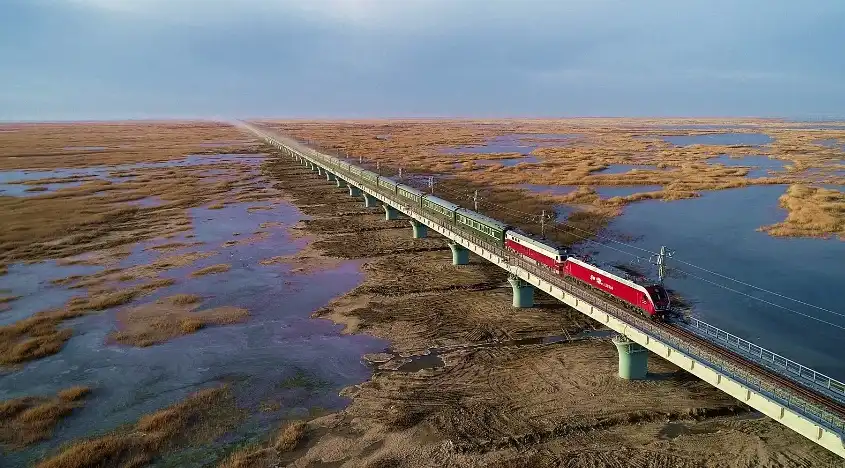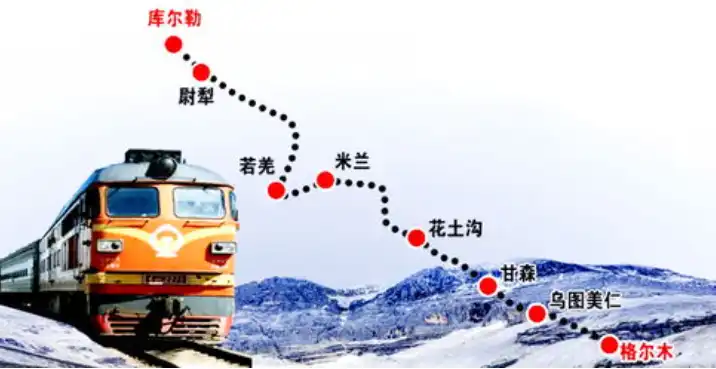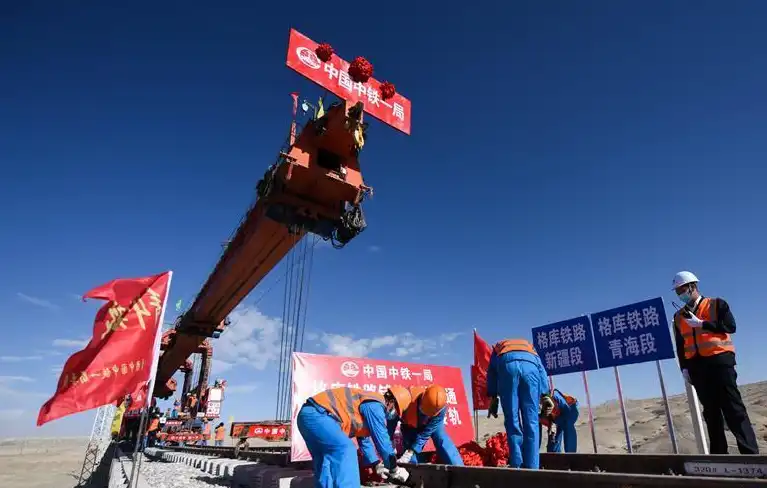Infrastructure maniacs are making renewed efforts to build the world's largest project-the Geku Railway with 1 trillion yuan
China's infrastructure prowess has long since earned it the reputation of "Infrastructure Maniac" worldwide.
From the rapid expansion of the high-speed rail network, to the blossoming of urban subways, and to the nationwide connectivity of major bridges and expressways, each project bears witness to China's solid strides towards transforming from a "big country" into a "strong country".
Today, however, we are going to discuss the world's largest project—the Ge-Ku Railway—into which China invested 100 billion yuan.

The Golmud-Lhasa Railway, being the third railway trunk line in the Tibet region of China, its importance is self-evident.
Starting from Golmud City of Qinghai Province in the east and reaching Korla City of Xinjiang Uygur Autonomous Region in the west, it stretches over 1200 kilometers, running through plateaus, deserts, and connecting China's western frontiers.
The construction of this railway will not only greatly promote economic exchanges between Qinghai and Xinjiang, but it will also become a new engine for economic and social development in western China.
In economic terms, the construction of the Belt and Road is an important component of the "One Belt One Road" initiative, As the saying goes:If you want to get rich, build roads first.
The Geku Railway closely connects the Qinghai-Tibet Plateau with surrounding areas, providing convenient transportation conditions for resource development and industrial upgrading in the western region.
As one of the economic development centers in Asia, Xinjiang's unique geographical location makes it an important hub for trade between China and Central Asia and Europe.
The opening of the Gaku Railway will further promote economic and trade cooperation between China and neighboring countries, helping to build a new height of open-type economy in the West region.

The importance of the Gerku Railway in terms of national defense and security is equally self-evident. The security and stability of the western region are of paramount importance to the overall security of the country.
The completion of this railway not only enhanced the strategic projection capability of the western region, but also provided a strong guarantee for the rapid mobility of the border guards. Under the complex and changeable international situation, the military value of the Ge-Ku Railway is self-evident.
However, the construction of the Ge-Ku Railway was not smooth sailing. Faced with multiple challenges such as high altitude, harsh weather, and complex terrain, Chinese engineers demonstrated remarkable intelligence and perseverance.
They build roads when they meet mountains, and build bridges when they encounter water, overcoming one seemingly impossible challenge after another. It is precisely this spirit of "not fearing hardship and daring to win" that has made China's infrastructure so splendid.

It is worth mentioning that the construction of the Ger-Ku Railway fully reflects China's high regard for ecological and environmental protection.
In the planning and construction of railways, the concept of green development should be adhered to, and the impact on the natural environment should be minimized as much as possible.
This not only embodies China's profound understanding of the harmonious coexistence of people and nature, but also sets an example for future sustainable development.
The completion of the Geku Railway is not only a major feat in China's infrastructure, but also an important milestone in its national development history.
Like a giant dragon soaring in the western sky of the motherland, it tightly connects more than half of China. Every beat of this steel artery conveys the strong pulse and firm belief in China's development.
It also demonstrated to the world the tenacity and indomitable spirit of the Chinese people, and showcased China's responsibility and strength as a major power.
